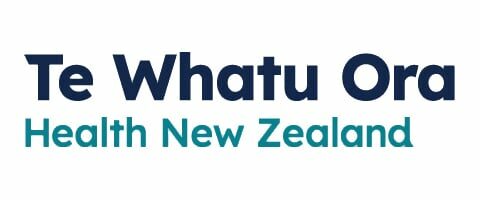Media Release: Issued: 9 November 2023
Results of Triennial Maternity Consumer Survey and Perinatal Bereavement Support Environmental Scan released
Te Whatu Ora – Health New Zealand has today released the results of its Triennial Maternity Consumer Survey, alongside the newly commissioned Perinatal Bereavement Support Environment Scan.
“I would first like to acknowledge the women and their whānau who took part in these surveys. Their feedback has been invaluable in guiding the decisions and improvements we are making in the sector,” says Deborah Pittam, Interim National Chief Midwife for Te Whatu Ora.
“I also want to acknowledge our incredible midwives and maternity kaimahi who delivered excellent health care for women and their whānau during what was – and continues to be – a very challenging time for the New Zealand health system. We thank them for their tireless work and commitment.”
The Triennial Maternity Consumer Survey provides a regular assessment of consumer satisfaction with primary maternity services in Aotearoa.
It found that overall, 79% of mothers who had live births were satisfied with the overall experience of care during their pregnancy, labour and birth, postnatal care and the care they and their baby received in the first few weeks at home. This is in comparison to 76% for Māori and 62% for disabled people.
“This report shows that while satisfaction levels with maternity services have dropped since 2014, the results overall remain positive. However, inequities in the maternal and perinatal system across Aotearoa continue to be highlighted as well as the need for a more joined-up, responsive system,” says Ms Pittam.
It is important to note that the maternity survey was undertaken during the COVID-19 period, which was a difficult time for pregnant women and new mothers who were unable to have whānau support present at the time of birth. The pandemic had a significant impact on the health sector, with restrictions resulting in fewer face-to-face engagements with maternity and support services.
“We understand how this may have impacted satisfaction levels of women and whānau with the care they received during this time. We recognise how incredibly challenging it would have been for those giving birth or dealing with the loss of a baby to not have the usual supports wrapped around them.”
The Perinatal Bereavement Support Environmental Scan seeks to understand the experiences, inconsistencies, and challenges for both parents and support providers experiencing perinatal loss of a baby, identifying potential solutions and improved outcomes for those affected.
It found that perinatal bereavement support continues to be fragmented nationwide and across care professions involved at different stages of the process.
The scan also found that access to perinatal bereavement support differs widely depending on the location and resources available.
“This disparity is often due to a limited workforce with experience in perinatal bereavement – particularly in smaller or remote regions.
“We acknowledge that no two journeys are the same for women and their whānau experiencing perinatal bereavement.
“Overall, there was a high level of satisfaction with most services; however, we recognise that there are a number of areas we need to improve within maternity and perinatal bereavement services, in many cases related to workforce challenges currently impacting care. Work is underway to address these concerns and feedback from whānau helps us to focus that work,” says Ms Pittam.
The whānau experiences, perceptions and recommendations explored in the maternity survey and the bereavement care environmental scan are informing the development and planning of services under Kahu Taurima – a joint approach between Te Whatu Ora and Te Aka Whai Ora on maternity and early years.
“Kahu Taurima seeks to integrate our primary care, community and specialist services to deliver excellent, easy to navigate, well connected and culturally affirming health services for women and whānau – no matter who they are or where they live.”
Results are also helping to inform the development of a national Bereavement Care Pathway within Kahu Taurima, which aims to ensure all bereaved whānau consistently have access to equitable, high quality, individualised, safe and culturally responsive bereavement care across Aotearoa.
“As part of the Health Workforce Plan released earlier this year alongside Te Aka Whai Ora, we are focused on how we can grow our midwifery workforce which includes expanding earn-as-you-learn pathways to support midwifery students, strengthening supports for tauira Māori and Pacific peoples in midwifery training, and helping support New Zealand qualified midwives who aren’t currently practising back into midwifery.
“Finally, I want to acknowledge the good work that continues to happen at both the national and local level, despite significant challenges. Te Whatu Ora is committed to improving and continuing to deliver high quality care to all women and whānau across Aotearoa,” says Ms Pittam.
Prior to the establishment of Te Whatu Ora, the Triennial Maternity Consumer Survey was reported by Manatū Hauora. The latest report can be found here.
The results of the Perinatal Bereavement Support Environment Scan can be found here.
ENDS
Media contact: hnzmedia@health.govt.nz
